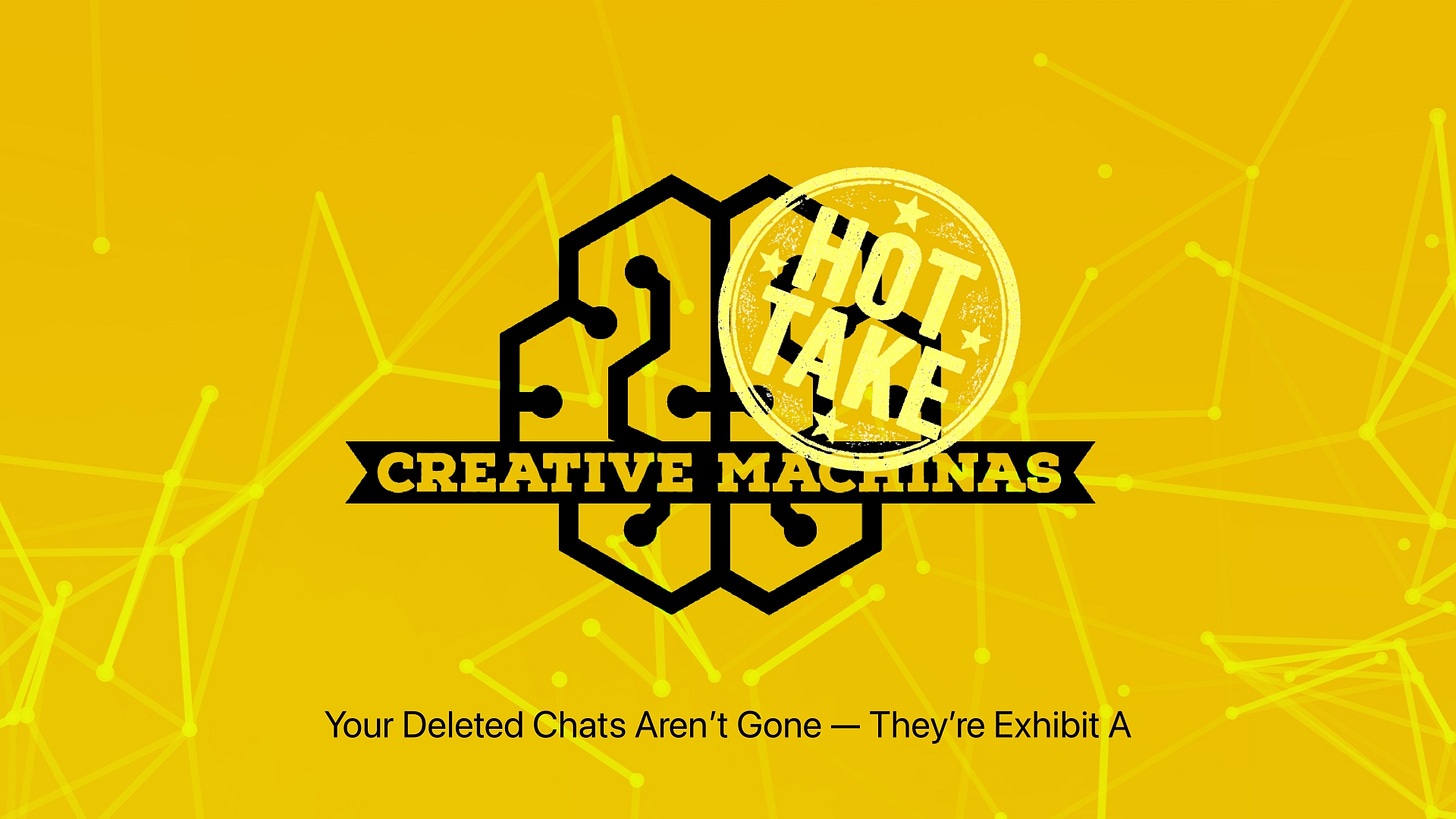OpenAI slams court order to save all ChatGPT logs, including deleted chats
OpenAI is pushing back against a sweeping US court order that requires it to retain all ChatGPT logs, including deleted chats and sensitive API data, amid a copyright lawsuit by The New York Times and others. OpenAI argues the order violates user privacy, disrupts contractual obligations, and imposes heavy engineering costs — all without evidence that users are deleting chats to hide copyright violations. Critics argue that the ruling risks exposing confidential data from millions of users, with some labelling it a “serious security breach.” OpenAI is seeking to overturn the order to protect user control over personal data. (via Ars Technica)
Hot Take
A civil court order has turned user privacy into collateral damage. By forcing OpenAI to retain even deleted chat logs, the legal system has crossed a line it barely understands.
A recent court order in a civil case against OpenAI has ignited fierce backlash by demanding that the company preserve all user interactions, including deleted prompts. On the surface, it may seem like standard legal procedure, discovery in the context of litigation. But peel it back and you’re left with something much darker, a precedent that fundamentally misunderstands what these systems are, how people use them, and why this matters for digital autonomy.
People don’t just search with generative AI. They speak to it. They draft late-night thoughts, explore identity questions, simulate scenarios too fragile for a human ear, or offload emotional weight in a moment of stress. These systems have become a kind of ambient thought partner, intimate, improvisational, and unfiltered. To compel the storage of those interactions under court order, particularly in a civil context, is to obliterate the boundary between inner dialogue and legal evidence.
“This isn’t just about privacy — it’s about whether your imagination belongs to you once it’s typed into a box.”
This isn’t a matter of law enforcement pursuing criminal activity. It’s a media organisation pursuing copyright claims, the New York Times in this case, and using discovery rules to reach inside the archives of people’s AI conversations. This means your prompts, your drafts, your accidental overshares, all of it, could become raw material in a courtroom, viewed by opposing counsel with zero regard for why it was generated in the first place. The chilling effect on how people use these tools is immediate and obvious, if speaking to an AI becomes risky, people will simply stop speaking honestly at all.
And it doesn’t stop at OpenAI. Similar data-retention questions hover over platforms like Alexa, Google Assistant, and Meta’s ever-expanding ecosystem. The idea that you’re having a private interaction is increasingly an illusion, one sustained by clever UI design and buried consent language. Meanwhile, judges and legislators continue to make rulings based on technological assumptions that are a decade out of date. They treat AI chats like filing cabinets, not like dynamic systems embedded into our lives and identities.
What’s most disturbing is that this order not only flattens privacy but collapses the very idea of deletion. A deleted prompt was once considered gone, an act of agency. But now, deletion is irrelevant if the system has already been compelled to retain that information behind the scenes. We’re in a new era of post-consent surveillance, not through the backdoor of malicious hacking or covert spyware, but through the front door of the courtroom. And because it’s coming from civil law, not national security protocols, the bar to entry is absurdly low.
Generative AI may have promised frictionless creation, but we’re now seeing the emergence of frictionless extraction, where your thoughts become indexed, your imagination becomes actionable, and your digital ghost can be summoned by lawyers you’ve never met. This isn’t just about privacy, it’s about whether your imagination belongs to you once it’s typed into a box.
If we don’t intervene with updated legal protections, more rigorous consent frameworks, and explicit data governance for generative systems, we’re on a direct path toward weaponised introspection, where your curiosity, your vulnerability, even your jokes become admissible against you.
Why It Matters
This case forces us to confront a legal and ethical vacuum surrounding generative AI. Tools that were never designed to function as records of truth are now being treated as discoverable archives. In doing so, we risk criminalising creativity, chilling speech, and fundamentally redefining what a “private” interaction means in the digital age. If prompt logs can be subpoenaed and deletion can’t be trusted, then users lose more than privacy — they lose control of their own cognitive process.
And for creators, journalists, strategists, students — anyone using AI for exploratory or sensitive work — the consequences are severe. The moment courts treat AI conversations as equivalent to formal communications, those spaces become compromised. The burden shouldn’t be on the user to second-guess every prompt, it should be on the legal system to understand that not all data is evidence, and not all queries are confessions. Generative tools need protection, not just regulation, because if the only safe interaction with AI is one you never have, the future of expressive technology is already broken.
» Listen to the Full Podcast Episode at the Top














